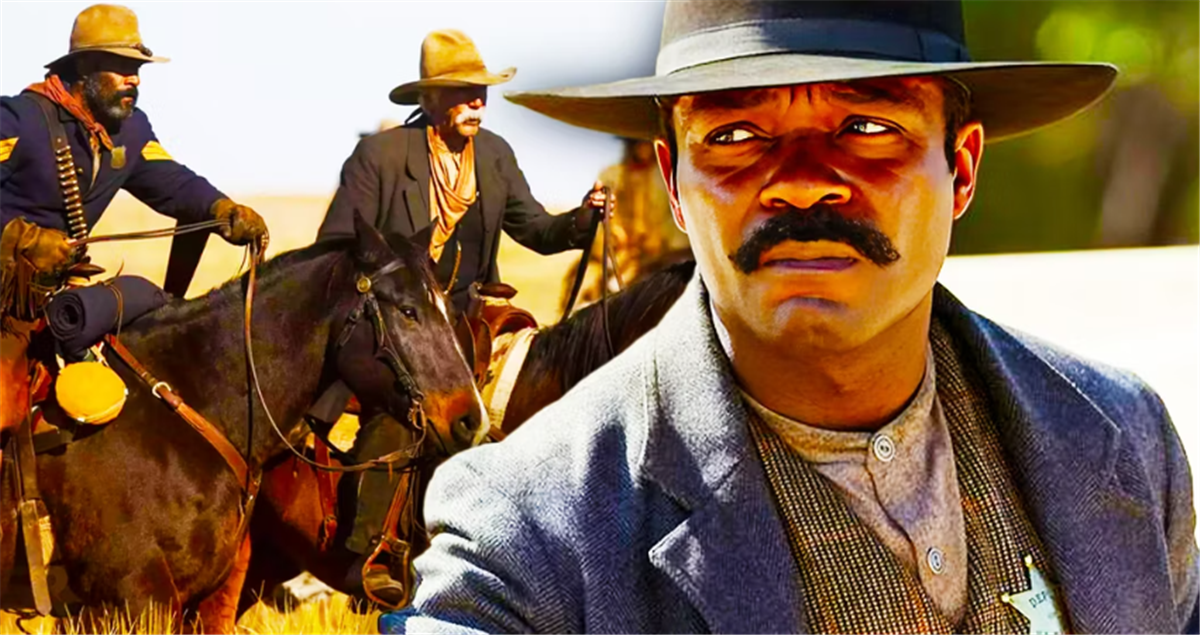Lawmen: Bass Reeves is the new Paramount+ series that looks to explore the true story of lawman and Wild Wild West legend, Bass Reeves. Lawmen: Bass Reeves was created by Chad Feehan and focuses on the first known Black American Deputy U.S. marshal west of the Mississippi River. Acclaimed British actor and producer David Oyelowo stars as the titular Bass Reeves in the Paramount+ Western that will portray the key moments of the lawman’s life.
Despite both shows being in the Western genre, Lawmen: Bass Reeves is not a part of Yellowstone, Taylor Sheridan’s acclaimed neo-Western genre. Whereas Yellowstone centers on fictional characters, Bass Reeves follows the life of a real-life figure. Specifically, the series is set to tell how the legendary lawman overcame insurmountable odds as a slave and worked his way to becoming one of the most revered lawmen of his era. Many books and novelizations have been penned in the interest of telling Reeve’s true story, but Lawmen: Bass Reeves has the potential to tell Reeves’ story to a new generation of Western lovers and history buffs.
Bass Reeves Was Born Into Slavery In 1838
Born before the Civil War in July 1838 in Crawford County, Arkansas, Reeves was born into slavery. While Reeves’ date of birth is unclear, it is widely accepted that the young Bass Reeves moved to Grayson County, Texas at around the age of eight when his owner’s son, George Reeves, decided to relocate. From here, Reeves developed a reputation for being hard-working and honest, two invaluable traits that any agent of the law should possess. However, Reeves’ status as a slave made it nearly impossible for him to seriously consider a career in law or law enforcement.
Bass Reeves Gained His Freedom During The Civil War

On account of Texas joining the Confederacy during the American Civil War and George siding with the Confederacy, this forced Bass to take up arms with the Confederates as well – something that Reeves constantly struggled with. At some point during the Civil War, Bass and Reeves got into a difference of agreement, some say over a game of cards, that led to the two men getting into a physical altercation. At 6′ 2″ and hardened from his years of working on various plantations, it is believed that Reeves beat George in a fistfight before fleeing to Oklahoma (then known as Indian Territory).
Once becoming acquainted with the Seminole and Creek Indians in Indian Territory, Reeves learned their languages and customs and ultimately earned their respect. Reeves would stay with the Native Americans until the 13th Amendment’s abolishment of slavery made him a free man. As a freedman, Reeves headed back to Arkansas where he homesteaded near Van Buren, Arkansas, met and married Nellie Jennie, and became a family man.
Bass Reeves Became The First Black Deputy Marshal To Serve West Of The Mississippi In 1875
Reeves sharpened his skills with various pistols and rifles in his spare time to protect his wife and their ten children. With slavery now abolished, the U.S. government beefed up its law enforcement efforts throughout the nation – and as such, various U.S. marshals were now looking to hire as many honest, hard-working, and capable men as possible to help maintain law and order. In 1875, James F. Fagan was appointed by the federal judge to hire 200 new deputy marshals – and after learning of Reeves’ character, intimate familiarity with Indian Territory, and marksmanship, Reeves was hired as a U.S. Deputy marshal.
Reeves’ early days as a lawman kept him busy in Indian Territory – the place that once acted as a surrogate home in Bass Reeves’ past, had now become overrun with corruption, thieves, and murderers. Reeves’ proficiency with his firearms and knowledge of Indian Territory seemed serendipitous as he would be asked to lead the charge in cleaning up Indian Territory. Whether for duty or honor, Reeves enthusiastically accepted the invitatio, and thus would begin his legendary law enforcement career.
Bass Reeves Retired In 1907 After Arresting Thousands Of Felons

Throughout Reeves’ career, he developed a reputation for being a creative thinker – often concocting unique ways to track down and capture (or dispatch) dangerous outlaws. Since Reeves couldn’t read or write, he would have someone read the details of the various warrants assigned to him, remember the details with a near-photographic memory, and spend months away from his family chasing after criminals. While Reeves’ professional career and reputation were thriving, things back home waned because of his absence, and it would even lead to one of his sons turning to a life of crime.
In 1902, news of one of Reeves’ sons, Bennie, murdering his wife in a fit of jealousy would reach the elder Reeves. While his colleagues were stunned and not sure what to do, Reeves knew the proper thing to do was to track down his son and see him brought to justice the same way he would with any other criminal. It is believed that Reeves searched for his son alone – and after two weeks, Reeves returned with Bennie and ensured that he was tried and sentenced.
Bass Reeves Died In 1910 Of Bright’s Disease
1907 was a notable year in American history for two reasons – Oklahoma officially became a state, and Bass Reeves retired as a U.S. marshal after making more than 3,000 arrests and neutralizing around fourteen dangerous outlaws in gunfights. Despite being retired, Reeves joined the Muskogee police department in 1907 where he acted in more of an advisory capacity. Two years later, Reeves was diagnosed with Bright’s disease (inflammation of the kidneys), and passed away shortly after on January 10, 1910 at the age of 71.
Was Bass Reeves The Real Inspiration For The Lone Ranger?

While it’s difficult to say for certain, it is widely believed by historians that Reeves was the main inspiration behind the 1949 Western series, The Lone Ranger. The concept of a lawman with an indomitable will and an ironclad sense of morals and integrity are not only characteristics that the eponymous Lone Ranger possesses and displays throughout the show’s five seasons, but they’re traits that the hero about to be seen in Lawman: Bass Reeves was perhaps most famous for.
